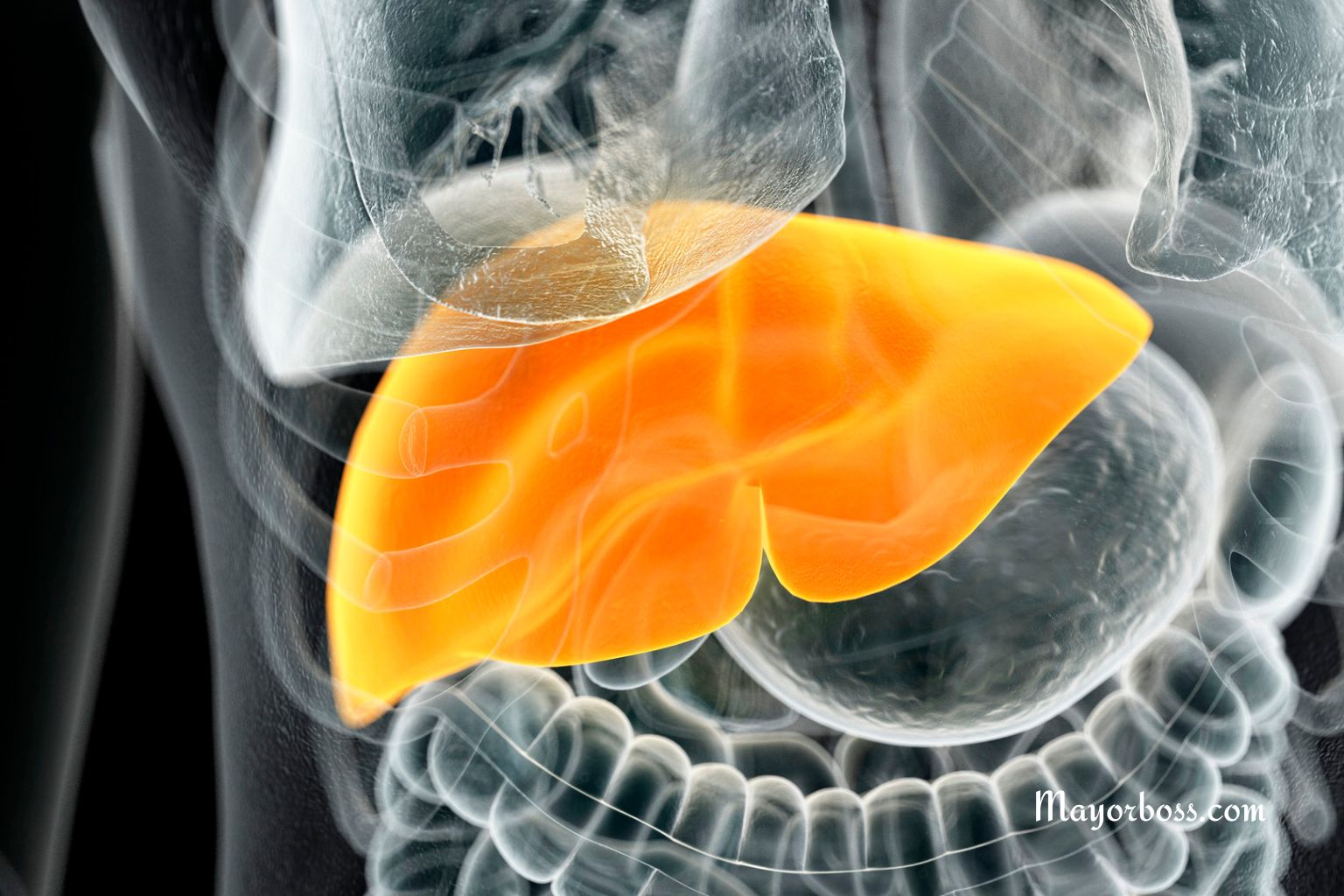What Destroys the Liver Worse Than Alcohol?
Several factors can damage the liver more severely than alcohol, including chronic viral hepatitis (especially hepatitis B and C), nonalcoholic fatty liver disease (NAFLD), some prescription and over-the-counter medications, illicit drug use, autoimmune liver diseases, and exposure to certain toxins.

The liver works quietly every day to keep you healthy. It filters toxins, aids in digestion, stores nutrients, and regulates the balance of chemicals in your blood. When most people think of liver damage, they picture alcohol abuse. While alcohol is a well-known threat, according to doctors, other factors can harm your liver even more aggressively and often go unnoticed until serious damage has occurred.
Excessive Sugar
Doctors warn that too much sugar in your diet can cause widespread inflammation in the body, including the liver. Sugar, especially in the form of fructose (found in table sugar and high-fructose corn syrup), is a fast-acting carbohydrate that sharply raises blood glucose levels. When you consume sugar in excess, your body must work hard to process the sudden spike in blood sugar.
The liver plays a central role in managing glucose and fat. When high amounts of sugar flood the bloodstream, the liver converts the extra glucose into fat. Over time, this process can lead to the buildup of fat within liver cells—a condition known as nonalcoholic fatty liver disease (NAFLD).1
High sugar intake does not just stop at fatty liver. It also disrupts both carbohydrate and lipid metabolism. This means the liver is forced to work even harder, increasing its workload several times. As a result, chronic high sugar consumption can accelerate liver inflammation, scarring, and eventually liver dysfunction.
Experts advise that you should not exceed the recommended daily sugar intake—6 teaspoons per day for most adults. Consistently going beyond this limit can raise your risk of several serious health conditions, including:
- Fatty liver disease
- Hypertension (high blood pressure)
- Type 2 diabetes
- Heart and blood vessel diseases
Limiting added sugar in your diet is one of the most effective ways to protect your liver and maintain overall health. Choose whole fruits over sugary drinks and processed snacks, and always check food labels for hidden sugars.
Chronic Viral Hepatitis
Chronic infection with hepatitis B or C viruses can destroy the liver more rapidly and severely than alcohol. These viruses attack liver cells, causing ongoing inflammation and scarring (fibrosis). Over time, this can lead to cirrhosis and liver cancer.
The danger with hepatitis B and C is that people can be infected for years without symptoms. During this time, the liver silently suffers. In fact, viral hepatitis is a leading cause of liver failure and liver transplants worldwide.2
Key Points:
- Hepatitis B and C spread through blood, unprotected sex, or from mother to child.
- Vaccines protect against hepatitis B, but there is no vaccine for hepatitis C.
- Early treatment can slow or stop the damage.
Nonalcoholic Fatty Liver Disease (NAFLD)
Nonalcoholic fatty liver disease is now one of the most common causes of chronic liver disease, even surpassing alcohol in some countries. NAFLD happens when fat builds up in the liver, usually due to obesity, diabetes, high cholesterol, or metabolic syndrome.3
Most people with NAFLD have no symptoms. However, if left unchecked, it can progress to nonalcoholic steatohepatitis (NASH), which involves liver inflammation and scarring. Eventually, NASH can cause cirrhosis and liver cancer.
Key Points:
- Risk increases with obesity, type 2 diabetes, and unhealthy eating.
- NAFLD can be reversed early through weight loss, regular exercise, and a healthy diet.
- Regular screening is important if you have risk factors.
Medications
Certain medications, when taken in high doses or for long periods, can harm the liver even more than alcohol. One of the most common offenders is acetaminophen (paracetamol). It is safe in recommended doses, but an overdose can cause rapid and severe liver failure.
Other medications that can damage the liver include:
- Some antibiotics (like amoxicillin-clavulanate)
- Anti-seizure drugs
- Statins (in rare cases)
- Herbal supplements (such as kava, comfrey, or certain weight-loss products)
Key Points:
- Always follow dosing instructions.
- Never mix alcohol and medications without your doctor’s advice.
- Tell your doctor about all medicines and supplements you take.
Illicit Drugs
Drugs such as cocaine, methamphetamine, and certain club drugs can cause liver inflammation, blood vessel problems, and sudden liver failure. These substances may also carry a risk of viral hepatitis from contaminated needles.4
Key Points:
- Illicit drug use damages the liver in several ways, including toxic effects and infections.
- Avoiding these substances is the best protection.
Environmental Toxins and Industrial Chemicals
Exposure to certain toxins and chemicals can cause rapid and irreversible liver damage. These substances can cause massive liver cell death within days. Examples include:
- Aflatoxins (mold toxins found in spoiled grains and nuts)
- Industrial chemicals like carbon tetrachloride
- Poisonous mushrooms (such as Amanita phalloides, or “death cap” mushrooms)
Key Points:
- Avoid eating wild mushrooms or spoiled foods.
- Use caution with chemicals in the workplace or home.
Takeaway
While alcohol is a well-known liver toxin, it is not the only or even the worst threat in many cases. Chronic viral hepatitis, nonalcoholic fatty liver disease, medication overdose, illicit drugs, and environmental toxins can all damage the liver more severely. Protecting your liver means being aware of these risks, getting regular medical checkups, and seeking prompt medical care when problems arise.
FAQs
1. Can you reverse liver damage from hepatitis or NAFLD?
Early damage may be reversible with treatment and lifestyle changes, but advanced cirrhosis is permanent.
2. Which over-the-counter medicine is most harmful to the liver?
Acetaminophen (paracetamol) is the most common cause of drug-induced liver injury when overdosed.
3. How do I know if my liver is damaged?
Signs can include fatigue, yellow skin or eyes, swelling in the legs or abdomen, and unexplained weight loss. Many people have no symptoms until advanced damage has occurred.
4. Are herbal supplements safe for the liver?
Some herbal products can harm the liver. Always consult your doctor before using supplements.
5. What is the best way to protect my liver?
Maintain a healthy weight, avoid excessive alcohol, get vaccinated for hepatitis, use medications as prescribed, and have regular checkups.
References:
- https://www.mayoclinic.org/diseases-conditions/nonalcoholic-fatty-liver-disease/symptoms-causes/syc-20354567 ↩︎
- https://www.msdmanuals.com/home/liver-and-gallbladder-disorders/hepatitis/overview-of-chronic-hepatitis ↩︎
- https://www.nhs.uk/conditions/non-alcoholic-fatty-liver-disease/ ↩︎
- https://pmc.ncbi.nlm.nih.gov/articles/PMC4184573/ ↩︎






